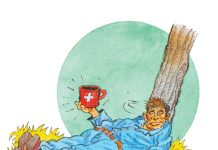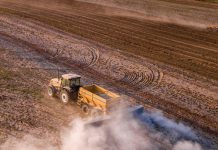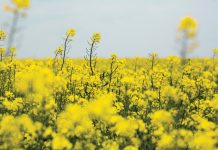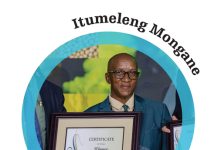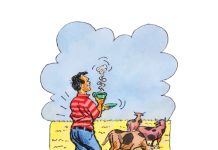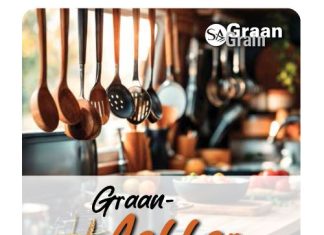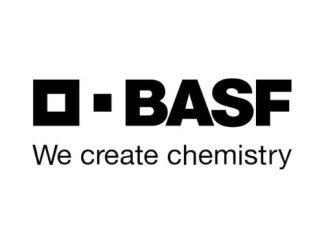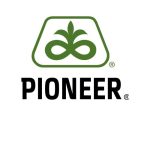 A British philanthropist from the 19th century, John Ruskin, believed that the highest reward for a person’s toil is not what they get for it, but what they become by it. André Louwrens (or Chooks as he is better known) from the Eastern Cape experienced this in his first season as a mentor. Not only did mentoring farmers who were part of Grain SA’s mentorship programme change his attitude about fellow South Africans, but he also witnessed a change in most of his mentees.
A British philanthropist from the 19th century, John Ruskin, believed that the highest reward for a person’s toil is not what they get for it, but what they become by it. André Louwrens (or Chooks as he is better known) from the Eastern Cape experienced this in his first season as a mentor. Not only did mentoring farmers who were part of Grain SA’s mentorship programme change his attitude about fellow South Africans, but he also witnessed a change in most of his mentees.
A programme that brings about change
Chooks really hopes that there will be funding for Grain SA to continue with this programme for years to come as so many of the participants improve their yields – and grow in confidence.
On average the group under his mentorship improved their yields from 3 t/ha to nearly 7 t/ha. A female farmer in the area even managed a yield of 9 t/ha. ‘She was desperate to improve her yield, so I suggested that she buy two bags of urea – which she did. She then painstakingly spoon-fed the plants, one teaspoon at a time.’ Not only did her hard work give her a higher yield, but it also gave her confidence a boost.
Chooks and Luke Collier, Grain SA development coordinator in Kokstad, became friends when they worked together on a farm in the Eastern Cape. When Luke became involved in the mentorship programme, he brought Chooks, who grew up on a farm in the area, on board because of his vast farming knowledge and fluency in Xhosa.
Unfortunately, his dad lost their family farm when Chooks was still young. However, with farming running in his veins, he managed to buy a farm with his brother in 1996. After buying out his brother, he decided to lease the farm out as this entrepreneur first tried other ventures before settling down where he belongs – after a long detour – on the farm.
Currently he has a mixed farming operation where he cultivates 120 ha of maize, 30 ha of cabbage, 30 ha of wheat and 20 ha of potatoes. He also owns some livestock and imports cabbage bags, which he sells to local cabbage farmers. ‘In this way I don’t over-pressurise the farm.’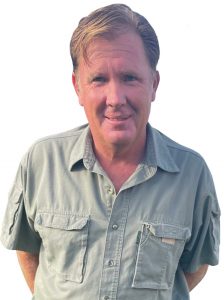
Quality makes the difference
In his first season as mentor, a group of 155 farmers was assigned to Chooks. He thinks that five of these farmers really have great potential to become successful commercial farmers. Chooks is still in close contact with some of them and even shared some of his seed potatoes with one of the farmers in the Mount Frere area. ‘He often contacts me to proudly share how well they are growing. Unfortunately, the farmers often buy inferior products at the co-op, which deliver poor quality produce.’
‘In our area, the Grain SA farmers achieve much better yields than other farmers,’ he says. He believes it is because the inputs provided through the programme are superior. To him, apart from correct agricultural practices, inputs are most important for a better yield. ‘What you use, makes a difference. It is a case of rubbish in, rubbish out.’
One of the stumbling blocks Chooks found amongst his group of farmers, was that they are easily influenced. ‘It is always to their disadvantage,’ he says and adds that the inputs, chemicals and mechanisation provided by Grain SA are of a high standard. Unfortunately, the farmers are often approached by agencies or companies with inferior products who convince them that their products are better.
Once the farmers see the repercussions of using a cheaper, inferior product, it is too late to change it. ‘By making mistakes, they have learnt that three bags of 22% fertiliser are not three bags of 40% fertiliser!
‘They say that good decisions come from experience, but experience usually comes from bad decisions. Although the outcome was unpleasant, it was a valuable life lesson that you have to spend money to make money.’
Another problem he identified was that some contractors give the farmers bad advice as it simplifies their job. ‘The biggest one was that the farmers should burn the stover – which of course causes soil problems.’
Selling and pricing are also problematic areas. ‘I discovered that people who say they are helping them, are often deceiving them.’
Choose what is important
One of the inspiring things that Stephen Covey, author of the worldwide best-seller The 7 habits of highly effective people said, is that most people spend too much time on what is urgent and not enough time on what is important. Chooks admits that he usually makes decisions from a financial point of view, but that his outlook has changed through his involvement in the mentorship programme.
By the end of his mentoring term, he found it very humbling to discover that a person can make a life-changing impact on others so quickly. ‘It is strange to think that relationships can form in such a short time. Many of the farmers still keep in contact. It is almost a teacher/student relationship, especially with the older farmers, who are desperate to learn and improve their farming skills.’




